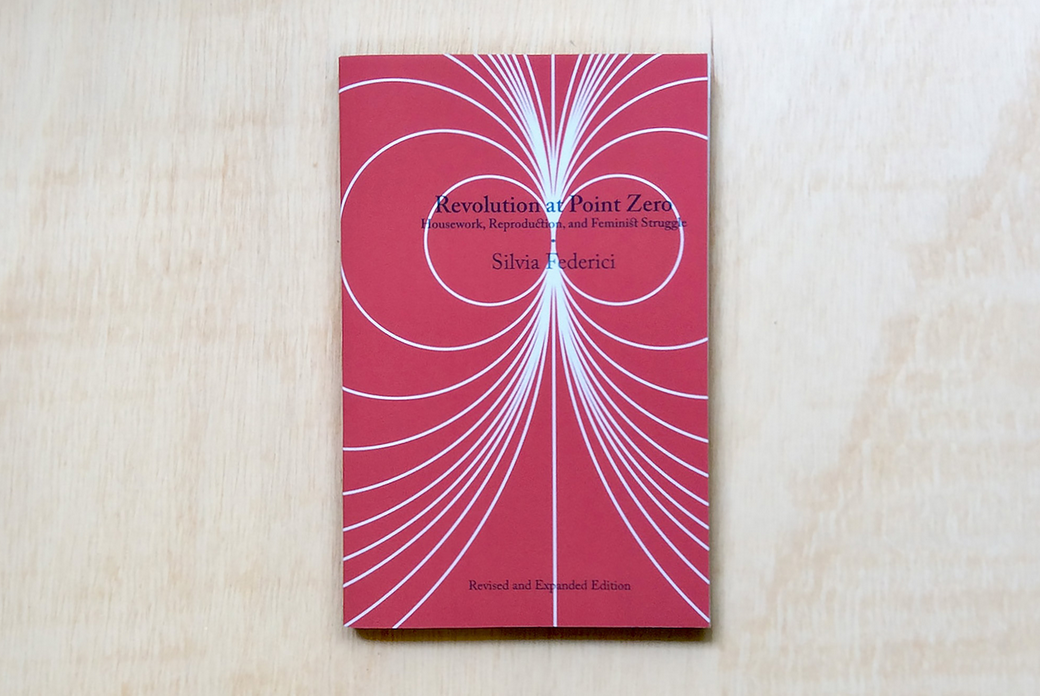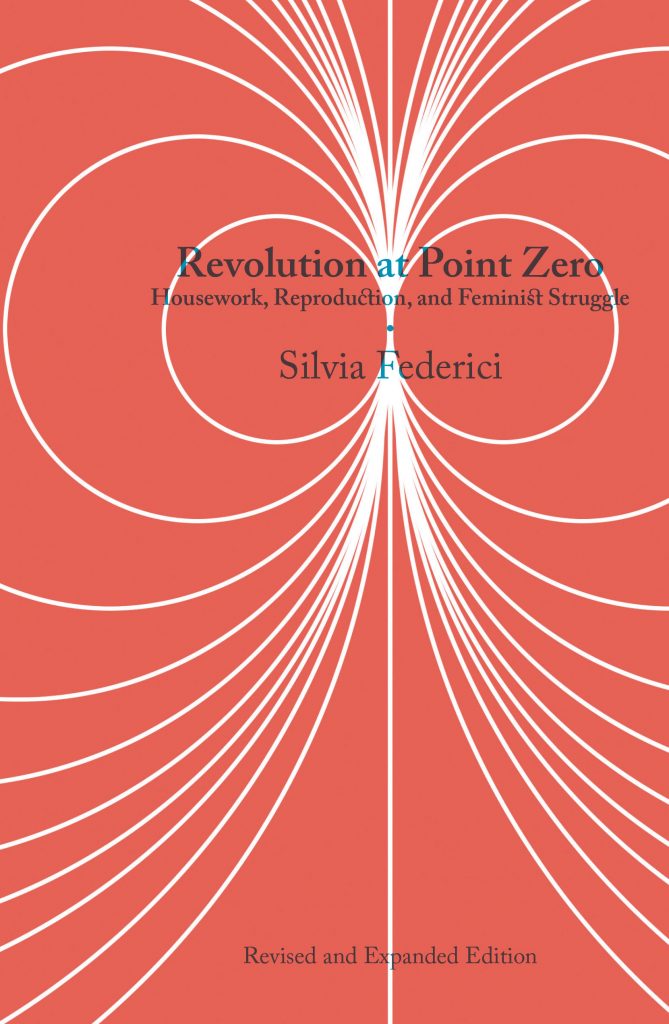by Silvia Federici
New Frame
December 30th, 2020
Silvia Federici explores how in fighting for their rights, migrant domestic workers circulate practices that influence feminist politics and foster cosmopolitanism.

This is a lightly edited excerpt from the revised and expanded second edition of Revolution at Point Zero: Housework, Reproduction and Feminist Struggle (PM Press, 2020) by Silvia Federici.
“We have seen other countries and have another culture”: migrant domestic workers and the international production and circulation of feminist knowledge and organisation.
“Transformative organising is about challenging structural inequities but it is also about personal transformation. . . . You create campaigns with a movement building perspective, that is not just about the ultimate win and what you can gain in the short term but it is about the struggle you engage in with people you never thought you would struggle with, who will be standing by you and by whom you will be transformed by virtue of struggling together.” – Priscilla Gonzales, Domestic Workers United, 2013
Over the last three decades the experiences and working conditions of migrant domestic workers have been at the centre of a growing body of sociological and feminist literature. The works of Rhacel Salazar Parreñas (2001), Barbara Ehrenreich and Arlie Russell Hochschild (2002), Lourdes Benería (2008), among others, have examined the role played by the neoliberal restructuring of the world economy in motivating women’s migratory movements and the international redistribution of domestic work. They have denounced the abuses to which migrant domestic workers have been exposed at the hands of immigration authorities and employers, the “care deficit” that female migration generates in the communities of origin, and the new divisions it institutes among women. More recent studies, by a new generation of feminist scholars, have also examined how racialised conceptions of ethnic and national identities shape the conditions of paid domestic work, and how the latter’s affective dimensions complicate the relations between domestic workers and their mostly female employers. Concepts like the “globalisation of care”, “global care chains” and “transnational motherhood” have given us a new understanding of how these developments have affected the lives of paid domestic workers and their families.
There is, however, another aspect of the experience of migrant domestic workers that deserves more attention. Through the cross-cultural exchanges that negotiations with employers and international authorities require and the creation of transnational communities fighting for their rights, migrant domestic workers have become the protagonists of a global circulation of practices and knowledges that have influenced feminist politics and contribute to the articulation of new forms of female subjectivity and a more cosmopolitan feminism. In particular, they have revitalised the feminist interest in the question of domestic work, a major concern in the feminist theory and practice of the 1970s that, by the 1980s, as feminists concentrated on fighting for women’s right to enter male-dominated occupations, had almost vanished from the feminist agenda, at least in the United States.
Related article:
In this article, I examine how migrant domestic workers’ organising has not only changed their relations with the institutions but also affected feminist activism and its research agenda. I argue that the efforts that migrant domestic workers have made to “valorise” their work and to denounce their exploitation are one of the main factors motivating the new feminist interest in “care work” and the debates it has generated. More than that, the growing presence of migrant domestic workers, in cities across the world, fighting for basic workers’ rights and denouncing the discrimination they suffer at the hands of not only governments but also female employers poses a challenge that feminists cannot ignore. It questions the possibility of solidarity among women and the adequacy of the once-dominant feminist strategy of emancipation through wage labour.
My interest in this article, then, is both theoretical and practical. While describing how domestic workers’ struggles have evolved and stressing their significance for feminist politics, I investigate what alliances are being forged between domestic workers and feminist organisations, and I question whether or not the conditions exist for an alliance between paid and unpaid domestic workers capable of transforming the social conception and treatment of domestic work and ending its social and institutional devaluation. I anticipate that neither domestic workers nor feminist organisations are currently pursuing this objective. Although a revalorisation of domestic work may be acknowledged as a common goal, the building of a movement of paid and unpaid domestic workers is not on anybody’s horizon. Nevertheless, the struggles that domestic workers are making are already having a consciousness-raising effect and are activating debates that can positively change the feminist agenda.
I base my conclusions and my analysis not only on scholarly literature but also on my participation in recent years in many feminist discussions on “care work” and on my encounters with immigrant domestic worker activists in New York, Madrid and Amsterdam whose organising exemplifies the claims I have made. The organisations I mention are the high points of a movement that for the most part still proceeds among great difficulties. Indeed, we should not overemphasise the migrant domestic workers’ capacity to resist the restrictions and exploitative practices to which they are subjected, nor overlook the diversity of experiences and conditions that define their situation internationally.
As several scholars have noted, improvements have been modest, despite significant struggles. Progress toward the public regulation of the home has been slow. In North America, for instance, migrant domestic workers have generally been excluded from the protections granted by labour legislation, and their work and living conditions have remained very restrictive. In the United States, only recently and in a few states have they obtained the right to organise. In Canada, they are still required to live in their employers’ homes for at least two years before applying for a permanent visa, a policy that institutionalises the threat of abuse, leading many women to enter the country as undocumented workers. Even where domestic work is recognised and regulated, implementation remains a problem, due to the privatised conditions in which the work is performed. Nevertheless, considering the variety of organisations that migrant domestic workers have created and their increasing engagement in collective action, it is clear that domestic workers are becoming a social force, one that “resembles a feminist movement” and can spearhead a mobilisation for the economic and cultural valorisation of domestic work. This was the objective of the International Feminist Collective that in the 1970s campaigned for wages for housework, arguing that this is the work that produces the workforce and benefits all employers. But despite significant organisational efforts that spread to several countries, little was achieved by it except for a better understanding of the function of domestic work in the process of capitalist accumulation.
Domestic workers’ organisations and struggles
“Sin nosotras no se mueve el mundo [Without us the world does not move],” asserts the Madrid-based domestic workers’ organisation Territorio Doméstico. There are several reasons why migrant domestic workers such as these in Madrid may succeed in accomplishing what the feminists campaigning for wages for housework in the 1970s could not. One important factor is that, from the beginning of their journey, they have been a community in struggle. As with other forms of migration, the decision to leave one’s country and travel thousands of miles, even across an ocean, to take a job as a domestic worker, is a very difficult one. Those who migrate are combative women, prepared to face many hardships and even a loss of social status to give a better life to their families. Many in their countries of origin had unionised or professional jobs and are well aware of labour rights and the value of their time and work. Migration itself is a learning and politicising experience, requiring the development of new skills and a capacity for endurance. Acquiring contacts and references, negotiating with agencies to obtain travel documents, adjusting to different countries and languages, living with strangers (often in hostile conditions) – these are life-changing experiences that produce profound subjective transformations and teach one how to fight. Many migrant domestic workers also come from countries that have been or are the sites of broad social movements or have strong traditions of working-class struggle and communal relations. Thus, they bring with them a knowledge and organisational capacity that enables them to mobilise against the exploitation they suffer and place their struggle in a broader political context. Furthermore, because of the conditions of their employment, which takes place in segregated social and physical spaces, migrant domestic workers are forced to break their isolation and, whenever possible, go out of the home and connect with other women. Especially for those who are live-in workers and reside in households where they hardly have any control over their space and time (even the right to lock the doors of their rooms is not generally granted), even temporarily leaving their employers’ homes and sharing their problems with other women is a matter of survival. Most important, unlike traditional “housewives”, they have no difficulty identifying as workers and imagining, under the proper circumstance, going on strike.
All these factors explain the capacity for organised resistance that migrant domestic workers have demonstrated, despite their extremely vulnerable situation. At first, many have organised on ethnic grounds, joining with other women from their own country and cultural background. Later they have built multinational organisations and engaged in collective action over the conditions of domestic work, lobbying politicians and staging marches and protest rallies. Crucial to these efforts has been the creation of informal networks providing a reference point for new arrivals and spreading information about housing, employment and migration laws. Equally important has been the construction of a new relationship with public space. Seen at first as a place of danger where they could be stopped by police or suffer other forms of abuse, public space has become for migrant domestic workers a place of encounters where they might regain the autonomy they are daily denied and reach out to a broader public, gaining visibility for their demands. Here again it is important not to minimise the differences, as Parreñas has pointed out in her comparative study of Filipina domestic workers in Rome and Los Angeles. In Rome, a city where Filipinas are residentially dispersed, they seek to escape the public eye by meeting in the periphery or – a favorite spot – underneath an overpass by the river Tiber. In other localities, they have tried to gather in more visible social spaces. In Hong Kong, on their days off, Filipinas have gone weekly to the streets and “taken over a central public space”, singing, dancing and acting out the problems inherent to their lives and work experiences. This phenomenon, which according to Vicky Tam “has become part of the social landscape in Hong Kong for the past decade”, is in reality an essential element of the domestic workers’ experience in most countries and a “recurrent theme in the writings of their organisations”. As Pappas-DeLuca writes, with reference to the experience of domestic workers migrating from Chile’s rural areas to Santiago: “Perhaps most important in terms of social mobility, were descriptions by domestic workers of getting together in informal places, such as public parks and plazas in Santiago, during their days off. It is there that many young migrants spend their free days socialising with one another and forming their own peer community. This community in contrast to their jobs in private homes, exists in the most visible of public places: parks and plazas.”
Related article:
Having a presence in the public space, occupying public space – the street, the sidewalk, the park – has proven a very effective way of organising. According to Priscilla Gonzalez, a former member of New York Domestic Workers United (DWU), one of the main domestic workers’ organisations in the United States, this public presence has enabled domestic workers to make their stories known. As she put it, in an interview concerning the campaign for the DWU Bill of Rights: “In terms of the strategy . . . what we also did was to anchor the campaign through our stories . . . contrasting and challenging our invisibility and saying: ‘This is what I go through,’ ‘This is what has happened to me,’ ‘This is why I am part of this campaign,’. . . ‘This is why I am fighting for this.’ . . . Prioritising storytelling is really a critical component of any organising. . . . Being able to create opportunities where people can come together, hear from each other, talk about the conditions they are facing and develop a common analysis. That’s what is gonna unify people.”
By being in the streets, migrant domestic workers have not only circulated their experiences, but have developed a broader understanding of the importance of their work and of the struggle over domestic work as a feminist struggle. I will return later to this point. Here I want to stress that it is mostly through self-organising that domestic workers internationally have begun to change their status, though in many cases they have also sought the help of NGOs and community groups or have allied with trade unions and founded trade unions of their own. In the Netherlands, for instance, domestic workers from the Philippines and Indonesia, in 2006, founded the United Migrant Domestic Workers (UMDW) and later joined the FNV Bondgenoten, the largest trade union in the Netherlands, especially its cleaners’ sector. They have also organised through the Wereldhuis [Worldhouse], an information and counselling centre for undocumented migrants in Amsterdam, where activities are carried out by the workers themselves. Thus, they have created their own leadership. Women who work all week, and in some cases have families of their own to care for, nevertheless provide training, information, legal assistance, and in addition organise meetings, events, engage in research, write articles, reports, newsletters, proposals and position papers.
As Helen Schwenken points out, domestic workers have generally resisted a labour union model of organisation, since it subordinates them to a male-dominated hierarchy and a logic shaped by the needs of formal employment, less congenial to the needs of women who work in isolated environments, and must confront individually the problems generated by the daily interactions with employers. Add to these considerations that, for women forced daily into a subordinate if not servile position, it is crucial to maintain control over their struggle, as it is to combine organising activities with the construction of new forms of sociality.





